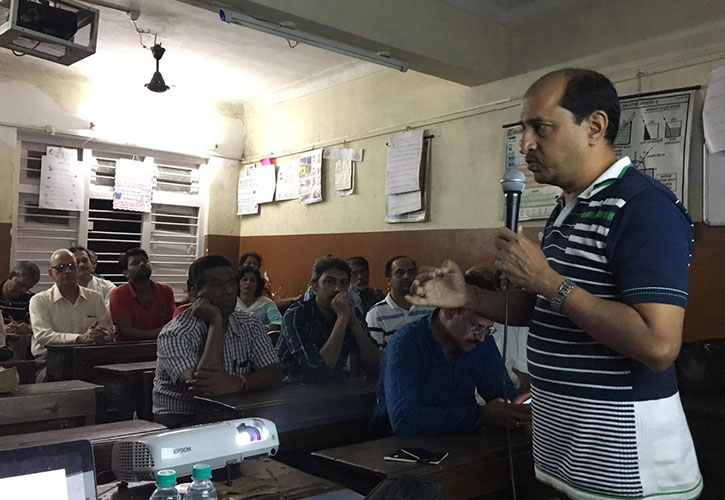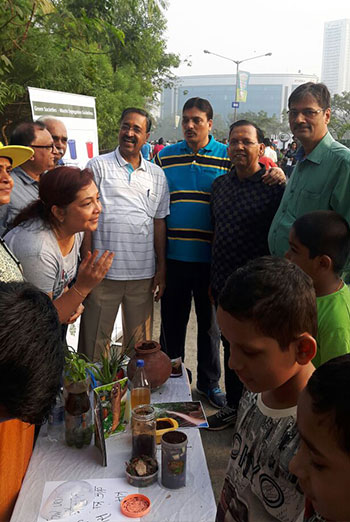



Green Societies (http://greensocieties.com/), a team comprising professionals from various backgrounds such as business, politics, marketing, environment science and organic kitchen gardeners with the sole mission of striving for a waste-free India, have put together an efficient process to make the society trash-free by showing cooperative societies in Mumbai simple methods to address the issue of solid waste. The group helps societies procure the equipment, install it and provides assistance with its operation for a few weeks. It also helps housing societies get tax breaks for their projects.
Green Societies has involved the BMC, NCC and government agencies to create an amazing network of volunteers who convert housing societies in Mumbai into “Waste Free Societies.” According to them, a “Waste Free Society” is a housing society or gated community where over 90% of its waste is converted for re-use instead of reaching landfills. This helps reduce pollution as well as costs for civic waste collection and disposal services.
The group says currently, less than 1% of the more than 8,500 tons of waste generated by housing societies reaches landfills every day in Mumbai, and an estimated 1,500 tons is uncollected, polluting the immediate neighborhoods.
“We have also tied up with Mumbai University & SNDT to encourage NSS students to visit different societies in Mumbai & Thane to make presentations on waste management, and we plan to cover about 25,000 societies as part of this project,” says Sushil Jajoo, one of the co-founders of Green Societies. Residential societies are a major source of waste generation, which if left unsegregated or unprocessed could trigger a vicious cycle of pollution, economic and ecological loss. This can be arrested if waste management and segregation begins at source.
Waste is frequently burnt in the neighborhood, polluting the air and most of the trash flows into the water supply system causing pathogenic diseases due to high levels of heavy metals and leaching plastics like BPA, insecticides and much more. In addition, the unsegregated waste that is carried to the dumping ground is also burnt while the trucks which ferry the waste add to the pollution.
According to Jajoo, “if we can promote waste segregation among individual households and composting of wet waste at the society level, we can solve the problem of garbage dumping to a great extent as the major portion of the dry waste will go for recycling.”
Green Societies has created a model in which the problem is addressed in the most professional and scientific way. They have also managed to bring together an array of experts, service providers while creating a volunteer network which can go about creating public awareness.
The model the team has put together with regard to segregation of waste, waste management, processing of wet biodegradable waste into compost and also getting the members involved in organic farming at home & society level is a 360ᴼ approach to address the issue.
Their approach of converting wet waste or biodegradable waste into compost and sending the non-biodegradable waste for recycling is sustainable both from the economical & environmental perspective.
The work done by Green Societies has a high impact value as it helps address the basic fundamental issue of waste management, which leads to soil, water, and air pollution.
They have been able to bring together all stakeholders - from end users to experts to service providers to volunteers - whose role is to create awareness and undertake capacity building.
In addition to addressing the problem of solid waste, the group helps societies create beautiful landscaped and vertical gardens and grow organic vegetables.
